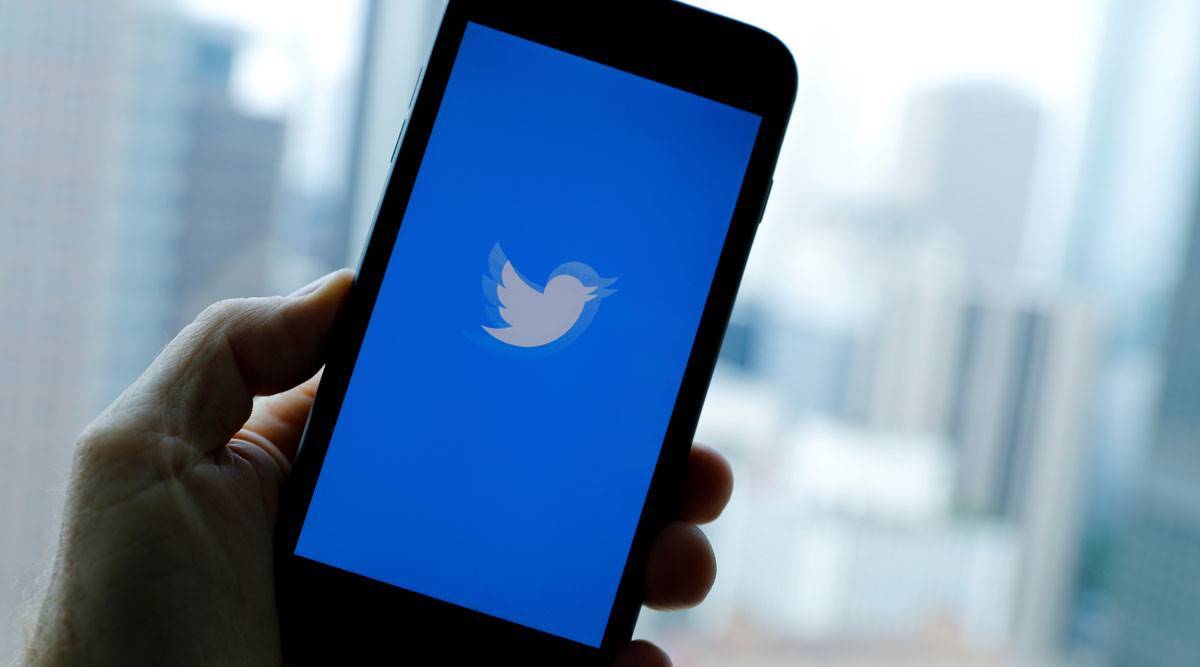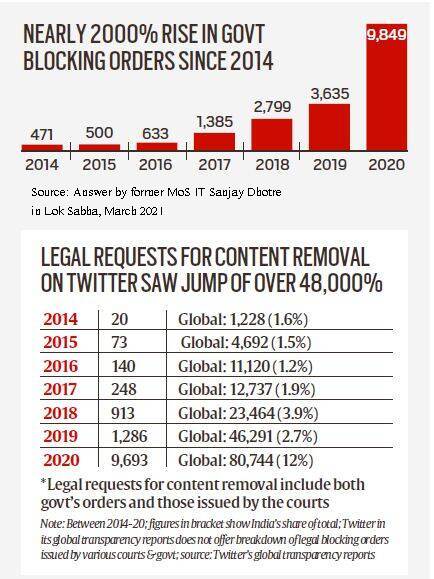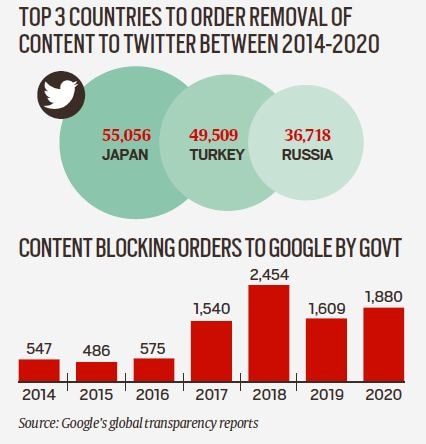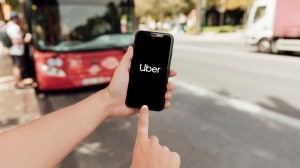There has been a rise of more than 48,000 per cent in legal demands being made by India — from various courts and the government — to remove content from Twitter between 2014 and 2020, an analysis of Twitter’s global transparency reports show. Incidentally, in the same time period, the number of content blocking orders issued to social media companies by the government has also increased by almost 2,000 per cent, data shared with Parliament showed, highlighting the growing trend of online censorship in India.
According to the data shared in the Lok Sabha by former Minister of State for Electronics and IT Sanjay Dhotre, the government ordered social media companies to take down 9,849 links from their platforms under Section 69 (A) of the Information Technology Act, 2000, in 2020, compared to 471 such requests made in 2014, an increase of 1,991 per cent.

According to Twitter’s global transparency reports, between the same time period, India has made legal requests to remove 12,373 pieces of content from the microblogging platform, of which more than 9,000 requests were made in 2020 alone. This places India in the fourth spot to issue blocking orders between 2014 and 2020, after Japan, which made more than 55,000 such requests; Turkey which made close to 50,000 requests; and Russia which ordered removal of more than 36,000 tweets.
Outside of that time frame, in the first six months of 2021, Twitter was asked by various Indian courts and the government to block a little more than 4,900 tweets — this coincided with the company blocking more than 250 accounts in relation to sharing “provocative” tweets over the then ongoing farmers’ protests and the company receiving orders from the government to take down some tweets critical of the government’s handling of Covid-19.
 Nearly 2000% rise in Govt blocking orders since 2014
Nearly 2000% rise in Govt blocking orders since 2014
It is worth noting that Twitter in its global transparency reports does not offer a breakdown of legal blocking orders issued by various courts and the government. However, Twitter’s petition against the Ministry of Electronics and IT’s (MeitY’s) blocking orders revealed that between February 2021 and February 2022, the government ordered the company to block more than 1,400 accounts and 175 tweets.

Between 2014 and 2020, the government ordered Google to take down over 9,000 pieces of content from services like Search, YouTube, Gmail, and Bloggr, for reasons like criticism of the government, defamation, adult content, and impersonation among other things, an analysis of the company’s global transparency reports show. Unlike Twitter, Google does offer a breakdown of how many takedown notices were issued to it by the government and how many from the courts.
Incidentally, on Facebook, takedowns have taken a downward trend. For instance, in 2014, the company blocked over 10,000 pieces of content, which further rose to more than 30,000 links being blocked on the platform.
Story continues below this ad
However, in both 2019 and 2020, not more than 2,100 links were blocked on the platform, as per its transparency reports. In these two years, the company took down content following government orders, including content against security of the state and public order.



 Nearly 2000% rise in Govt blocking orders since 2014
Nearly 2000% rise in Govt blocking orders since 2014






